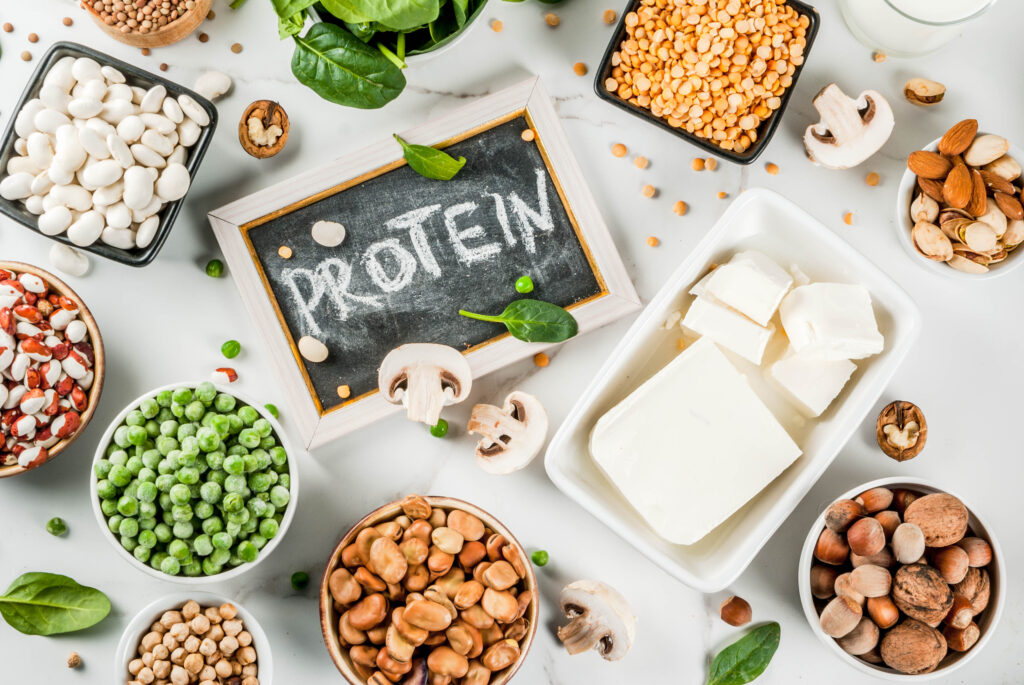The popularity of plant-based diets has surged, with more people than ever embracing the health and environmental benefits of eating more plants. While there may be concerns about meeting protein needs on a vegan diet, the truth is that there are plenty of plant-based protein sources that can provide all the essential amino acids your body needs to thrive. In this article, we’ll explore the world of plant-powered protein, discuss its benefits, and provide tips for incorporating vegan protein sources into your diet for optimal health and wellness.
Plant-powered protein offers a multitude of benefits for both your health and the planet. Unlike animal-based proteins, which can be high in saturated fat and cholesterol, plant-based proteins are typically lower in fat and free of cholesterol, making them heart-healthy options. Additionally, plant-based diets have been linked to lower rates of chronic diseases such as heart disease, type 2 diabetes, and certain cancers. By incorporating more plant-based proteins into your diet, you can support your overall health and reduce your risk of chronic disease.
In addition to being good for your health, plant-powered protein is also good for the planet. Animal agriculture is a major contributor to greenhouse gas emissions, deforestation, and water pollution, making it one of the leading causes of environmental degradation. By choosing plant-based proteins over animal-based proteins, you can reduce your carbon footprint and help mitigate climate change. Plant-based diets are also more sustainable and resource-efficient, requiring fewer land, water, and energy resources to produce compared to animal-based diets.

One of the most common concerns about plant-based diets is whether they provide enough protein to support muscle growth, repair, and overall health. The good news is that there are plenty of plant-based protein sources that can provide all the essential amino acids your body needs to thrive. Legumes such as beans, lentils, and chickpeas are excellent sources of protein, as are tofu, tempeh, and edamame. Nuts, seeds, and whole grains also contain protein and can be incorporated into meals and snacks to boost your protein intake.
When it comes to incorporating plant-based proteins into your diet, variety is key. Aim to include a wide range of protein sources in your meals and snacks to ensure you’re getting all the essential amino acids your body needs. Experiment with different types of beans, lentils, and legumes, such as black beans, kidney beans, and split peas. Try tofu and tempeh in stir-fries, salads, and sandwiches, or use them as meat substitutes in your favorite recipes. Incorporate nuts and seeds into your breakfast cereal, yogurt, or smoothies, or enjoy them as a crunchy snack.
Another way to boost your protein intake on a plant-based diet is to include protein-rich grains such as quinoa, amaranth, and buckwheat in your meals. These grains are not only high in protein but also rich in fiber, vitamins, and minerals, making them a nutritious addition to any diet. Experiment with different grains in salads, soups, and grain bowls, or use them as a base for vegetarian stir-fries and curries. You can also use grain-based products such as whole grain bread, pasta, and cereal to increase your protein intake.
In addition to whole foods, there are also many plant-based protein powders and supplements available on the market that can help you meet your protein needs. Pea protein, rice protein, and hemp protein are popular options for vegan athletes and fitness enthusiasts looking to increase their protein intake. These protein powders can be mixed into smoothies, shakes, or oatmeal for a quick and convenient way to boost your protein intake post-workout or anytime throughout the day.
When incorporating plant-based proteins into your diet, it’s important to pay attention to portion sizes and balance your meals to ensure you’re getting all the nutrients your body needs. Aim to include a variety of protein sources in each meal, along with plenty of fruits, vegetables, whole grains, and healthy fats. Be mindful of your overall calorie intake and choose nutrient-dense foods that provide a wide range of vitamins, minerals, and antioxidants to support your overall health and wellness.
Plant-powered protein offers a multitude of benefits for both your health and the planet. By incorporating more plant-based proteins into your diet, you can support your overall health, reduce your carbon footprint, and help protect the environment for future generations. With a little creativity and experimentation, you can enjoy a delicious and nutritious diet rich in plant-powered protein sources that nourish your body and satisfy your taste buds. So why not give it a try and experience the benefits of plant-based eating for yourself?





